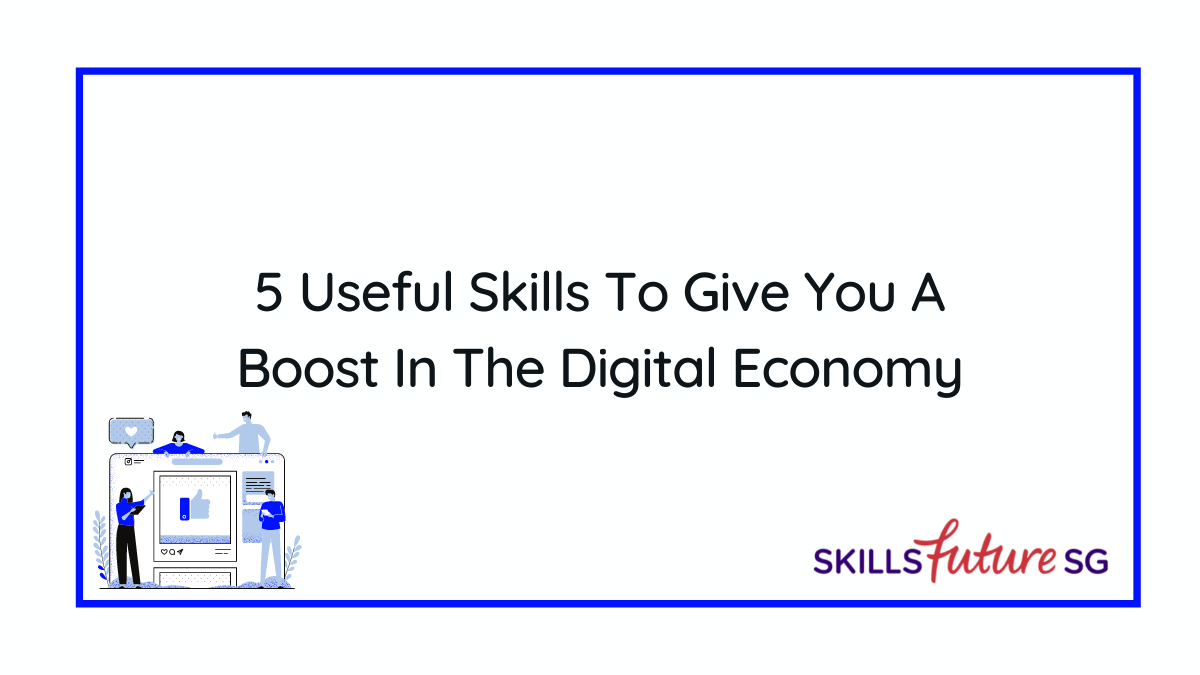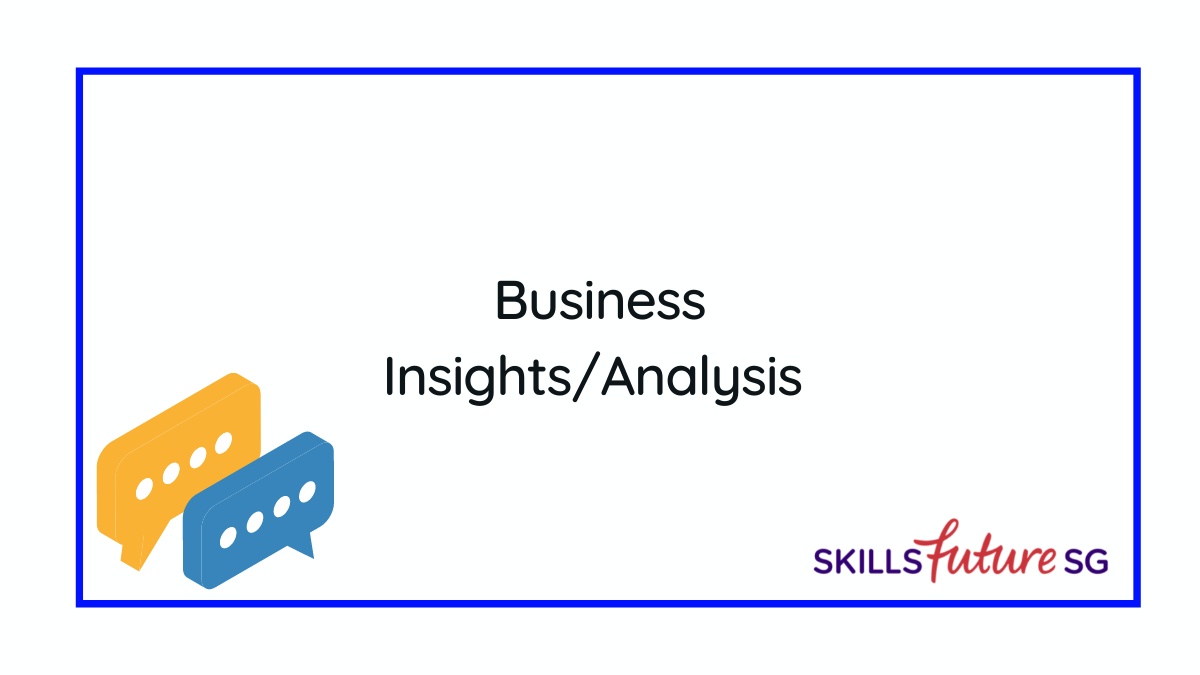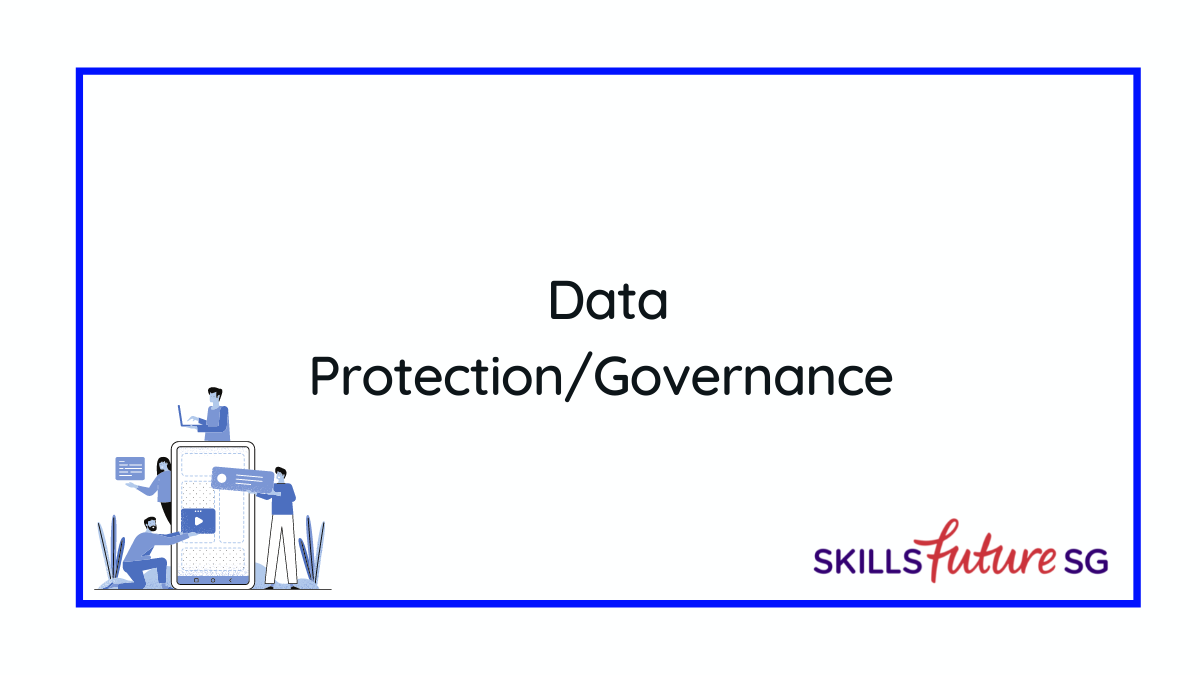Welcome!
For Singapore Citizens & Permanent Residents
Don't have a Singpass account? Forgot your password? Click here
Don't have a Singpass account? Forgot your password? Click here
Published by SkillsFuture Singapore

This article was written with reference to the inaugural Skills Demand for the Future Economy Report that was published in 2021. A latest report has been published in 2022. Click here to read the latest Skills Demand for the Future Economy Report 2022.
You may have heard about the “digital economy” over the past few years, but what exactly is the digital economy?
The digital economy is defined by the World Economic Forum as a marketplace that is defined, organised, enabled, and facilitated by technology. Many of our daily activities involve the digital economy. In fact, you’re already growing the digital economy by reading this article on your phone or computer.
Even if your current job role might not fall under the digital economy, the truth is, companies from all industries are embracing digitalisation.
It’s no surprise that growing the digital economy is part of the national Research, Innovation and Enterprise 2025 Master Plan which looks at enhancing the digital capabilities of industries in Singapore.
Acquiring digital skills is a great way to prepare yourself for roles in the digital economy. In a 2020 survey conducted by SkillsFuture Singapore, 70% of workers were confident that their skills would be applicable within the next three to five years. However, only 50% of employers believe that their workers have the skills to meet the needs of their company.

Jobs in the digital economy can be broken down into two areas: tech-lite and tech-heavy. While tech positions are open across all sectors today (even in areas like security and real estate), most are tech-lite roles that do not require specialised or advanced IT skill sets.
Today, the most in-demand tech-lite roles in Singapore are in the areas of Digital Marketing, Data Protection, and Business Analysis. Some examples of tech-lite roles include data analysts, digital marketing analysts, and business analysts. Even if your present role does not fit into the tech-lite or tech-heavy category, there’s a chance that it might become so in the future as more companies look to digitalise their workflow.

There’s no need to take a comprehensive degree or a full-time course when you’re starting out on gaining digital skills. Instead, go for bite-sized courses to identify the areas that you’re interested in. Once you have decided on the relevant skill to pick up, speak with other industry practitioners on ways to attain skill mastery or check out our course directory page to nail down the course that best suits your needs.
It’s also a good idea to look for transferable tech skills that can let you perform your job functions across a variety of industries. This way, you can have the flexibility to jump across different roles and disciplines.

Data is at the heart of the digital economy. From consumption habits to predicting trends, data can transform businesses and give them a competitive edge.
If you’re looking to get started in data analytics, it’s best to familiarise yourself with software like Excel, SQL, and Tableau. These programmes provide data dashboards that help to pivot and slice data effectively. Once you’re familiar with manipulating data, you can work on gaining advanced data skills like computer science, Python coding, and even machine learning!
Introduction to Data Analytics [Synchronous E-learning]
Duration: 6.5 hours
Training provider: Nanyang Polytechnic
Course fee: $260
Find out more about the course here
Data Analytics Begins With Me (Synchronous e-learning)
Duration: 8.5 hours
Training provider: National University of Singapore
Course fee: $850
Find out more about the course here

While analysing data is fundamental, data alone is ineffective if it cannot translate to actionable steps. Instead, it’s important to know what to do with the data and business insights can help with that.
By combining data with business analytics, you’ll be able to increase your understanding of consumer behaviour and give yourself a competitive advantage. Knowing how to visualise and present data to draw upon actionable steps is a highly-rated skill and will set you apart from others.
Tableau: Unlocking Insights with Analytics
Duration: 15 hours (2 days)
Training provider: Singapore Management University
Course fee: $1,600
Find out more about the course here
Digital Business Analysis
Duration: 19.5 hours (3 days)
Training provider: National University of Singapore
Course fee: $2,400
Find out more about the course here

With so much data produced daily, there’s a need to protect and create proper safe-keeping of such information. It’s no surprise that organisations in Singapore are required to appoint Data Protection Officers to oversee and ensure compliance with the Personal Data Protection Act (PDPA).
Having knowledge of data protection will help you in the long run as more companies place greater emphasis on data security. A typical data protection course shares more about the various laws and regulations that companies must follow, along with best practices to ensure that data is safe and secure.
Fundamentals of the Personal Data Protection Act 2020 (Classroom & Synchronous)
Duration: 23 hours (3 days)
Training provider: Ngee Ann Polytechnic
Course fee: $690
Find out more about the course here
Practitioner Certificate in Personal Data Protection (Singapore) Preparatory Course
Duration: 15 hours (2 days)
Training provider: Singapore Polytechnic
Course fee: $900
Find out more about the course here

For those who are in finance, Financial Analytics is an important skill to keep under your belt. From sales prediction to identifying profitable clients, financial analytics provide different views on financial data.
Through keeping a close eye on financial statements, this in-demand skill allows you to generate useful insights and develop effective strategic plans to improve the business performance of your company.
Financial Statement Analysis
Duration: 11 hours (2 days)
Training provider: National University of Singapore
Course fee: $2,000
Find out more about the course here
Data Analytics for Financial Statements Audit
Duration: 15.5 hours (2 days)
Training provider: Singapore Institute of Technology
Course fee: $1,900
Find out more about the course here

There has been an increased demand in sectors such as computer software, insurance, and biotechnology for individuals with market research skills. With the market getting increasingly saturated with new competitors, the need for skilled market researchers to understand the market and consumer behaviour will increase.
A market research course shares more about research methods and best practices to understand the consumer and market. The courses are usually shorter, allowing more time for you to practice the skill in the field instead.
Product Managers and Designers Research Toolkit
Duration: 14 hours (2 days)
Training provider: Ngee Ann Polytechnic
Course fee: $800
Find out more about the course here
Broadcasting, Publishing and Media Competitor and Consumer Research Methods
Duration: 17 hours (2 days)
Training provider: First Media Design School
Course fee: $850
Find out more about the course here

Along with new job opportunities and skillsets, the Digital Economy is set to grow over the next decade. These five useful skills are just a few examples that can give you a boost in the Digital Economy. You can also explore other selected SkillsFuture Credit-eligible courses for the Digital Economy here.
Don’t forget to pick up Critical Core Skills in your upskilling journey as well. These 16 soft skills such as communication and creative thinking will complement the skills covered in this article and are handy at any workplace.
If you would like to speak with a Skills Ambassador to learn more about the different types of skills you can pick up in the digital, care, or green economy, head over to the Skills & Training Advisory Services page. This free service lets you speak with a Skills Ambassador who can direct you to the relevant training and resources.
For those who are still deciding on an industry to join, check out why you should consider a career in cybersecurity or healthcare!

Employers have been increasing their demand for specific soft skills, also known as Critical Core Sk...

Employers have been increasing their demand for specific soft skills, also known as Critical Core Sk...

Provided to every Singapore Citizen aged 40 to 60 as of 31 December 2020, the Additional SkillsFutur...

Mid-careerists looking to convert into the tech industry can find useful tips on how to reskill or u...

Local manufacturing SMEs get support from Bosch Rexroth Regional Training Centre in adopting i4.0 pr...

Singaporeans can use their SkillsFuture Credit to pay for selected online learning subscription plan...

Expanded training support for Singaporeans aged 40 and above to continue skills upgrade and pursue s...

The March 2024 issue of SkillsFuture Jobs-Skills Insights puts the spotlight on embracing a skills-f...

Ready to Level Up? Find out what courses to take with your $4,000 SFC (Mid-Career) top-up in the Ski...

Product manager, Will Lin, shares his experience and career advice on how he transitioned into his c...

In the Skills Demand for the Future Economy (SDFE) 2023/24 report, you can find out about this and m...

The SkillsFuture Career Transition Programme (SCTP) supports mid-career individuals in acquiring ind...

Inclusive training not only empowers individuals with special needs but workplace culture, encouragi...